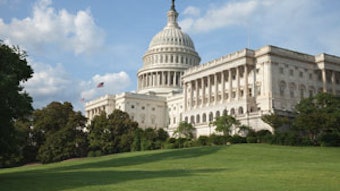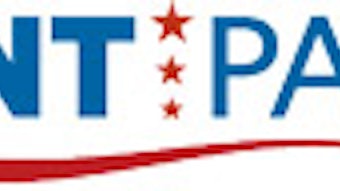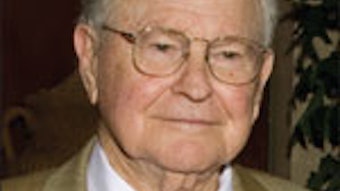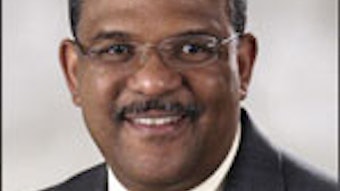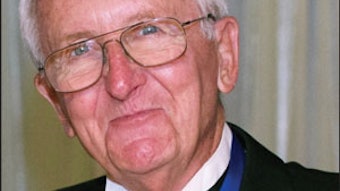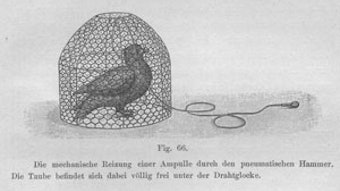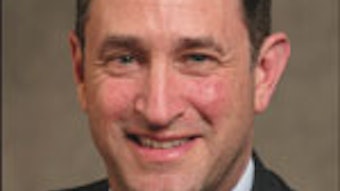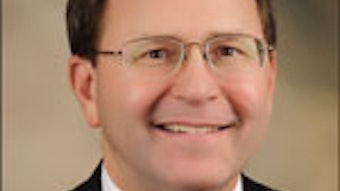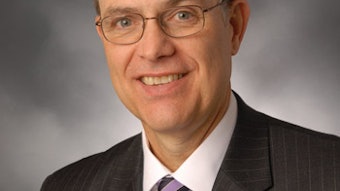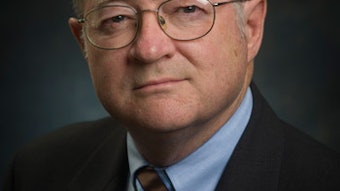Key AMA Policy Changes Impacting Our Specialty—AMA Annual Meeting Re-Cap – EXTENDED ONLINE VERSION
Liana Puscas, MD Chair, AAO-HNS Delegation to the AMA House of Delegates The American Medical Association (AMA) conducted its annual House of Delegates (HOD) meeting in Chicago, Illinois, from June 7-11, 2014. At the meeting, the AAO-HNS was represented by Liana Puscas, MD, MHS, delegation chair; Delegates Michael Goldrich, MD, and Shannon Pryor, MD; and Alternate Delegates Robert Puchalski, MD, and Academy EVP/CEO David R. Nielsen, MD. Joy Trimmer, JD, senior director of Government Affairs, and Danielle Jarchow, JD, health policy analyst provided staff support for the Delegation and OTO Section Council. Among the many items of business on the agenda affecting the general House of Medicine, the following issues are highlighted due to their potential influence on members of our Academy. Guidelines for Medical Healthcare Teams. The AMA’s Council on Medical Service presented its report regarding model healthcare teams and clearly delineated physician leadership of healthcare teams. Grace Periods under the ACA. Under the Affordable Care Act, patients enrolled in federal plans have a 90-day grace period for paying their premiums. During this time, care provided by a physician would not be covered if the patient does not pay the premiums that are in arrears. The AMA passed policy favoring advocacy in support of insurance company notifications of a patient’s grace period status upon eligibility verification by the physician. Health Insurance Formulary Transparency. The AMA supports legislation or regulation that ensures private health insurance carriers declare their formularies by October 1 of the preceding year. This would include information regarding generic versus trade formulations, copay responsibilities, and the inability to change a medication to a higher tier within the policy term. FDA Regulation of All Nicotine Products. The AMA passed resolutions opposing any FDA rule that exempts any nicotine-containing products, including e-cigarettes and cigars, from FDA regulation. Super Magnetic Toys. The AMA passed a resolution asking for a ban of neodymium magnetics whose magnetic strength index is greater than a certain threshold due to gastrointestinal and choking hazards produced by such toys. Restrictive Covenants. The AMA adopted a report opining that competition among physicians is ethically justifiable when based on factors such as quality of services, skill, experience, and conveniences offered to patients. Covenants aimed to reduce competition can disrupt continuity of care and limit access to care. Hospital Policies on Interactions with Industry. The HOD adopted a report by the Board of Trustees that encourages hospitals to craft policies concerning the relationships and interactions between hospital personnel and industry representatives within the hospital setting. Place of Service Code for Observation Services. In alignment with the Academy, the AMA continues to support advocacy with CMS to modify the rules that govern observation versus inpatient status. Many patients admitted for observation require the same level of care as those who are formally classified as inpatients, especially when that length of stay extends beyond a 24-hour period. Patients are often liable for services provided as part of observation care, and reimbursement is lower for observation status patients than inpatient status patients, even if the services provided by the physician are identical. Sunshine Act. The AMA website is prominently featuring information and guidelines for physicians during the tiered implementation of this Act. The next meeting of the AMA HOD is scheduled for November 8-11 in Dallas, Texas. As a reminder, since AMA delegations are in proportion to an organization’s number of AMA members, it is imperative that we continue to grow our AMA membership to maintain otolaryngology’s representation in the HOD. With questions regarding this report and other AMA House of Delegates activities, please email govtaffairs@entnet.org.
Liana Puscas, MD
Chair, AAO-HNS Delegation to the AMA House of Delegates
The American Medical Association (AMA) conducted its annual House of Delegates (HOD) meeting in Chicago, Illinois, from June 7-11, 2014. At the meeting, the AAO-HNS was represented by Liana Puscas, MD, MHS, delegation chair; Delegates Michael Goldrich, MD, and Shannon Pryor, MD; and Alternate Delegates Robert Puchalski, MD, and Academy EVP/CEO David R. Nielsen, MD. Joy Trimmer, JD, senior director of Government Affairs, and Danielle Jarchow, JD, health policy analyst provided staff support for the Delegation and OTO Section Council.
Among the many items of business on the agenda affecting the general House of Medicine, the following issues are highlighted due to their potential influence on members of our Academy.
- Guidelines for Medical Healthcare Teams. The AMA’s Council on Medical Service presented its report regarding model healthcare teams and clearly delineated physician leadership of healthcare teams.
- Grace Periods under the ACA. Under the Affordable Care Act, patients enrolled in federal plans have a 90-day grace period for paying their premiums. During this time, care provided by a physician would not be covered if the patient does not pay the premiums that are in arrears. The AMA passed policy favoring advocacy in support of insurance company notifications of a patient’s grace period status upon eligibility verification by the physician.
- Health Insurance Formulary Transparency. The AMA supports legislation or regulation that ensures private health insurance carriers declare their formularies by October 1 of the preceding year. This would include information regarding generic versus trade formulations, copay responsibilities, and the inability to change a medication to a higher tier within the policy term.
- FDA Regulation of All Nicotine Products. The AMA passed resolutions opposing any FDA rule that exempts any nicotine-containing products, including e-cigarettes and cigars, from FDA regulation.
- Super Magnetic Toys. The AMA passed a resolution asking for a ban of neodymium magnetics whose magnetic strength index is greater than a certain threshold due to gastrointestinal and choking hazards produced by such toys.
- Restrictive Covenants. The AMA adopted a report opining that competition among physicians is ethically justifiable when based on factors such as quality of services, skill, experience, and conveniences offered to patients. Covenants aimed to reduce competition can disrupt continuity of care and limit access to care.
- Hospital Policies on Interactions with Industry. The HOD adopted a report by the Board of Trustees that encourages hospitals to craft policies concerning the relationships and interactions between hospital personnel and industry representatives within the hospital setting.
- Place of Service Code for Observation Services. In alignment with the Academy, the AMA continues to support advocacy with CMS to modify the rules that govern observation versus inpatient status. Many patients admitted for observation require the same level of care as those who are formally classified as inpatients, especially when that length of stay extends beyond a 24-hour period. Patients are often liable for services provided as part of observation care, and reimbursement is lower for observation status patients than inpatient status patients, even if the services provided by the physician are identical.
- Sunshine Act. The AMA website is prominently featuring information and guidelines for physicians during the tiered implementation of this Act.
The next meeting of the AMA HOD is scheduled for November 8-11 in Dallas, Texas. As a reminder, since AMA delegations are in proportion to an organization’s number of AMA members, it is imperative that we continue to grow our AMA membership to maintain otolaryngology’s representation in the HOD.
With questions regarding this report and other AMA House of Delegates activities, please email govtaffairs@entnet.org.


